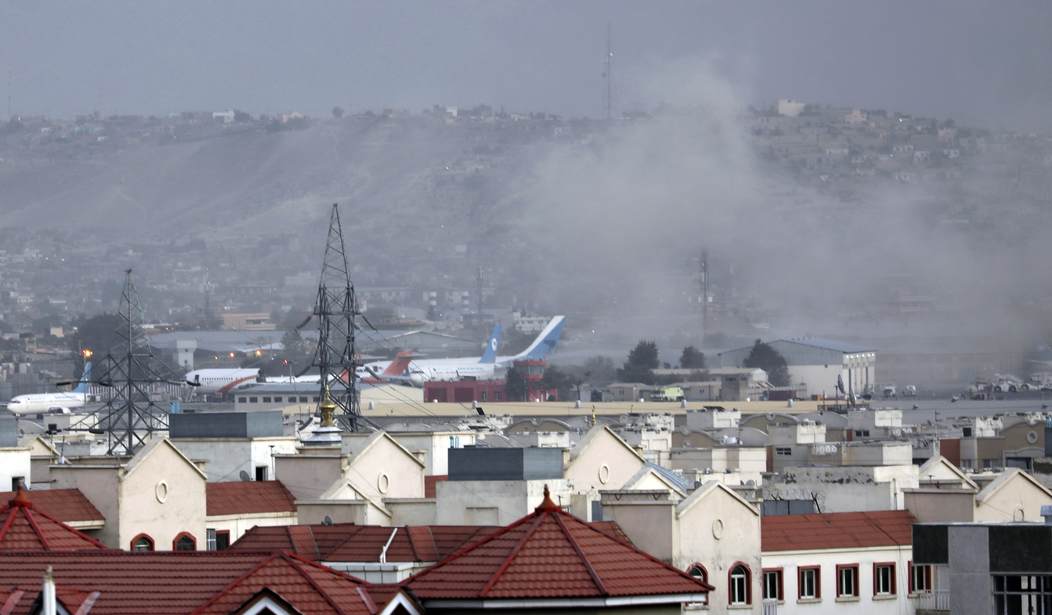The Pentagon announced Wednesday the results of a review of the botched August 29th drone strike that killed ten innocent civilians — including seven children — in Kabul during Biden's disastrous withdrawal from Afghanistan. The short version of the investigation's conclusion is that mistakes were made, but no wrongdoing occurred.
In a Pentagon press briefing, Lieutenant General Sami Said — the inspector general of the U.S. Air Force — explained that the full report on his review of the strike remains classified, but shared limited unclassified details along with his conclusion.
"The investigation found no violation of law, including the law of war," Lt. Gen. Said told reporters. "It did find execution errors, confirmed by confirmation — or combined with confirmation bias and communication breakdowns that regrettably led to civilian casualties."
Specifically, the problems "all tracked back to that role of [the vehicle that was ultimately struck] being seen at a location that was associated with ISIS, and everything after that seemed to be confirmation bias."
Shortly after the attack, President Biden and others in his administration heralded the strike, and Chairman of the Joint Chiefs of Staff Gen. Mark Milley went so far as to — incorrectly — call the botched attack a "righteous strike."
"The intended target of the strike, the vehicle, the white Corolla, its contents and occupant were genuinely assessed at the time to be a threat to U.S. forces," Lt. Gen. Said continued. "Regrettably, the interpretation or the correlation of the intelligence to what was being perceived at the time, in real time, was inaccurate. In fact, the vehicle, its occupant and contents did not pose any risk to U.S. forces."
Recommended
Ultimately though, Lt. Gen. Said concluded that "The authorities and rules of engagement utilized to execute this regrettable strike were understandable, and they were understandable based on the information available at the time and the perceived very high threat to U.S. forces at HKIA."
Due to what the IG seems to think were understandable mistakes — that ended up taking ten innocent lives — he explained that the classified report would be referred to operational commanders for them to determine "what else they might want to do to implement corrective measures" and "if any accountability is appropriate."
Apparently in lieu of any specific accountability recommendations for anyone involved in gathering the intelligence that was flawed, misidentifying a target, or approving the lethal strike, Lt. Gen. Said offered three recommendations and explained them to reporters:
The first one is implementing procedures in a strike cell where if we find ourself in a similar situation where we're time-constrained conducting strikes very quickly because of the need to exercise self-defense in urban terrain and we're trying to interpret or correlate intelligence to what we're seeing in a rapid fashion, implementing procedures to mitigate the risk of confirmation bias, which we can talk more about that as to why it's of interest in this particular case.
The second recommendation is enhancing situational awareness by sharing information that is very thoroughly-shared within the confines of the strike cell and within a bubble within that strike cell. But sharing that situational awareness analysis more broadly across the strike cell, but also outside to elements supporting this strike cell from elsewhere. That additional information will enhance overall situational awareness and will provide better insight and better cross-check of, what exactly are we looking at? What are we seeing? What else could it be? Are we interpreting the intelligence in an appropriate way or not?
And the last, I mentioned that the assessment of the presence of civilians, specifically children in the compound was inaccurate. So recommended a review of how that assessment is conducted, again, under rapid strikes, where you're exercising something in a time-constrained fashion for a more deliberate, lengthy day's time-type strikes which you're accustomed to. I think that's pretty tight because you have the luxury of time. You don't have the luxury of time when you're perceiving something to be an imminent threat that's approaching you, and you need to have lockdown procedures of how we might be able to improve that to pick up on what's there.
Lt. Gen. Said also sought to emphasize earlier messaging from Pentagon officials — including CENTCOM Commander Kenneth McKenzie and Press Secretary John Kirby — about the botched strike being different from an "over the horizon" strike — the kind of capability Biden has said the United States will rely on to keep ISIS, Al Qaeda, or Taliban forces from using Afghanistan as a stronghold and launching point for new attacks against the United States or its allies. Instead, Lt. Gen. Said claimed, this was a "unique" "self defense strike" that apparently "can't compare" with "99.9 percent of the strikes" people are used to.
Throughout President Biden's deadly and humiliating Afghan withdrawal, he insisted that the buck would stop with him while he continually passed blame on to others. Not only did he leave Americans and Afghan allies stranded behind Taliban lines, his reliance on Taliban goodwill led to the deaths of 13 American service members and hundreds of innocent Afghans in an ISIS-K suicide attack. As Lt. Gen. Said confirmed again in his review, the response to that attack was the killing of ten more innocent Afghans, including seven children.
























Join the conversation as a VIP Member